Local College Access Networks
“What’s interesting about the attainment conversation is that education is everybody’s business… It’s like a movement. If we all agree to focus on it, the students will feel it in the air that high school isn’t enough. You need a plan for more.”
– Ava Parker, President, Palm Beach State College, speaking about LCAN Achieve Palm Beach County at the Florida Chamber Learners to Earners Summit, 2017
To equip Floridians with the skills needed for tomorrow’s jobs, communities throughout Florida are collaborating across sectors in forming Local College Access Networks (LCANs).
What are Local College Access Networks (LCANs)?
Local College Access Networks (LCANs) are community-based coordinating bodies supported by a team of community and education leaders representing:
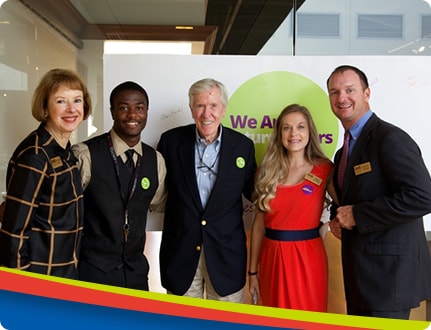
- K-12 school districts
- Higher education
- Nonprofits
- Local government
- Business and economic development
- Philanthropy
These collaborative networks are committed to increasing college and career readiness, access, and completion rates for students within their communities who are outside the mold of the traditional college student, such as low-income students, adult learners, and those who are the first in their families to attend college. LCAN members work together to better coordinate and leverage resources that lower the barriers preventing students from completing their educations beyond high school.
“It’s not only choosing partners, but choosing specific leaders within those partners who are committed to a collective impact approach to solve a complex problem.”
– Marlene Spalten, CEO Community Foundation of Tampa Bay
LCANs organize community leaders around a single goal: to increase the proportion of working-age Floridians with a degree or workforce-relevant credential to 60% by the year 2030. LCANs set goals focused on student success, agree on metrics, report results, and hold partners accountable for performance.
LCANs currently represent nearly 82 percent of Florida’s population:
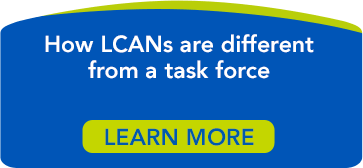 LCANs are led by multi-sector leadership, taking a data-informed approach to understand the unique barriers to college and career success in their communities. They leverage the strengths that already exist to scale promising approaches and, through collaboration, foster system change to better serve students.
LCANs are led by multi-sector leadership, taking a data-informed approach to understand the unique barriers to college and career success in their communities. They leverage the strengths that already exist to scale promising approaches and, through collaboration, foster system change to better serve students.
LCANs use the collective impact framework for social change. This helps them balance the long-term nature of system change with quick wins that build public support, enthusiasm, and momentum.
Quick Wins: Florida FAFSA Challenge
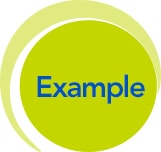 Affordability is one of the biggest barriers students face in attending college. In a survey of Florida residents’ opinion on higher education, 88% of parents want their children to go to college, yet 70% believe college is unaffordable in Florida.
Affordability is one of the biggest barriers students face in attending college. In a survey of Florida residents’ opinion on higher education, 88% of parents want their children to go to college, yet 70% believe college is unaffordable in Florida.
And even though an estimated 50% of Florida high school seniors are eligible for federal Pell Grants, many students do not take advantage of these funds for a variety of reasons. In 2013, FCAN estimated that Florida students left behind $100 million in Federal Pell Grants by not completing the Free Application for Federal Student Aid (FAFSA). In 2015, FCAN announced the Florida FAFSA Challenge to address this issue. Schools and communities throughout Florida mobilized to support and encourage more low- and moderate- income students to complete a FAFSA, which provides access to financial aid at the federal, state, and local level to students who qualify. During the 2016-17 challenge, communities with LCANs had an additional 10.8% of completed FAFSAs than those without an LCAN. This contributed to Florida improving FAFSA completions by 19% in one year, the third-highest improvement nationally. The collaborative and aligned nature of these communities helped them develop a coordinated approach, giving many students access to financial aid, which made the difference in their ability to attend college.
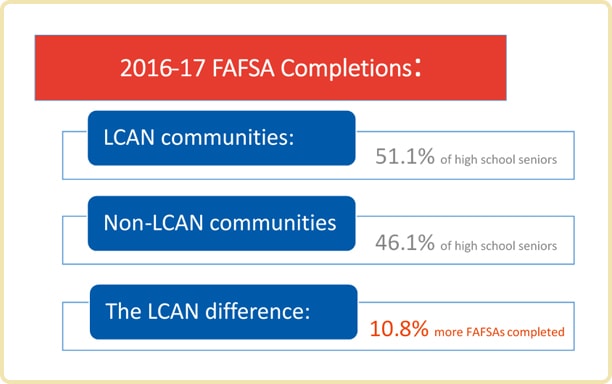
System Change: FutureMakers Coalition Mobilizes Student Success through Partnership and Scholarship Innovation
 The FutureMakers Coalition, an LCAN serving a five-county region in Southwest Florida, created career-track opportunities for underemployed residents by working to meet a chronic shortage in Certified Nursing Assistants (CNAs). Through the coalition, the Southwest Florida Community Foundation, Lee Health, CareerSource Southwest Florida, and education providers (Cape Coral Technical College and Fort Myers Technical College) worked together to provide better coordination, funding, and other resources residents needed to complete the CNA certification program. This included helping students cover the cost of exam fees and books, and training students on the foundational skills needed to embark on their careers. Each partner had to change part of their processes and procedures to make the program work. Yet in doing so, they closed the talent gap in this high-demand field and created a replicable framework to help put other residents onto a self-sufficient path.
The FutureMakers Coalition, an LCAN serving a five-county region in Southwest Florida, created career-track opportunities for underemployed residents by working to meet a chronic shortage in Certified Nursing Assistants (CNAs). Through the coalition, the Southwest Florida Community Foundation, Lee Health, CareerSource Southwest Florida, and education providers (Cape Coral Technical College and Fort Myers Technical College) worked together to provide better coordination, funding, and other resources residents needed to complete the CNA certification program. This included helping students cover the cost of exam fees and books, and training students on the foundational skills needed to embark on their careers. Each partner had to change part of their processes and procedures to make the program work. Yet in doing so, they closed the talent gap in this high-demand field and created a replicable framework to help put other residents onto a self-sufficient path.
FCAN Provides Support for LCANs
FCAN is here to support new and existing LCANs in deepening their impact through a variety of avenues:
Technical assistance – FCAN provides one-on-one and community coaching in leading a collective impact network, establishing measurements and metrics, and sharing ideas and lessons learned from other LCANs.
Data support – FCAN stays on top of the latest sources for data, vetting the best sources for communities to use in setting goals and measuring progress.
Public will-building – FCAN cultivates relationships with statewide and national organizations that can lead to introductions with local leaders ready to support the common agenda of an LCAN. FCAN also works with statewide partners to help remove barriers to student success that impact the entire state.
Learning community – FCAN promotes a culture of continuous learning among the LCAN network through monthly LCAN leadership affinity groups, an annual statewide summit, webinars, and by creating and vetting tools and resources helpful to the LCAN community-building work.
Statewide initiatives – FCAN promotes school and district support by leading College Ready Florida, which consists of four statewide initiatives: Apply Yourself Florida, the Florida FAFSA Challenge, Florida College Decision Day, and Plan It Florida. These initiatives have mobilized communities to support students in planning for and applying to college, completing their FAFSA, and celebrating their postsecondary plans.
Funding opportunities – FCAN occasionally offers seed and capacity-building funding for LCANs, and shares funding opportunities offered through other state and national funding organizations.
Join or form an LCAN in your region!
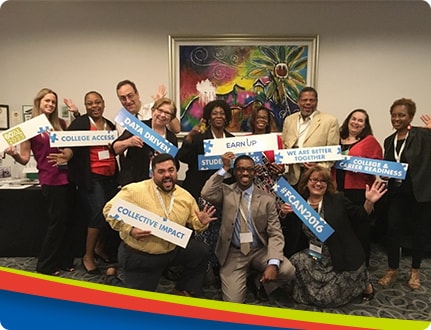 Join an LCAN in your area by completing the form on the right sidebar of this page, and help students get ready for the rapidly changing jobs of tomorrow.
Join an LCAN in your area by completing the form on the right sidebar of this page, and help students get ready for the rapidly changing jobs of tomorrow.
No LCAN in your area? Contact FCAN today to learn more about how to form one in your community.
Download the Community Readiness Assessment to get started.




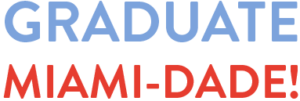
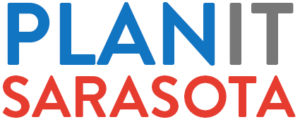

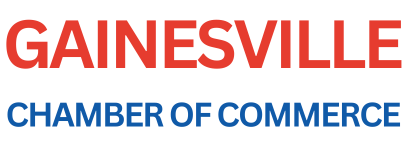








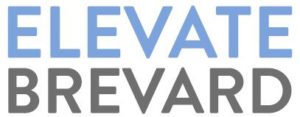
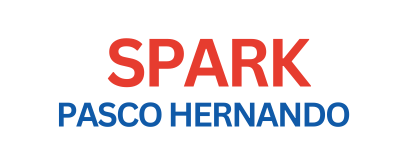 How are LCANs a better approach?
How are LCANs a better approach?